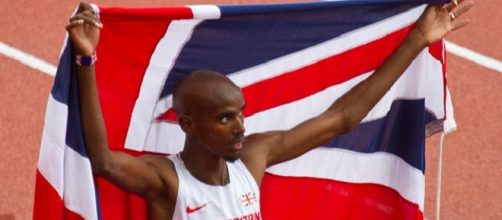Team GB ended on a high note in Beijing at the WorldChampionships, claiming twobronze medals on the final day of competition. The resultspleased UK Athletics performance director, Neil Black, as they now look forward to emulating their feat of seven medals inRionext year. Fourth place in themedals table behind the athletics heavyweights of Kenya, Jamaica and USA was testament to a strong team performance.
Britain’s medal roll of honour included:
Mo Farah (gold inthe men's 5000m & 10,000m) – there were further opportunities for Farah to re-create his ‘Mobot’ celebrations as he confirmed his placeas the man to beat over the distance events.
Steady pace or late burn-up, Farah seemed to have all the answers to confound the mainly African opposition once more.
His abilityto put behind himself a troubling season off the track, with disturbingdoping allegations about his American coach Alberto Salazar, suggesteda man who seems to be in control of his current destiny.
Greg Rutherford (gold in thelong jump) – despite Olympic gold in London and re-affirmation of his winning instincts at last year’s major competitions, Rutherfordwas expected to succumb to American opposition in Beijing. Instead it was the world leaderJeff Henderson who came up short to take only ninth.
The Britkept his nerve to stretch out to a season’s best of 8.41 metres to clinch the ‘holy grail’ of titles: Olympic, World, European and Commonwealth Games.
Jessica Ennis-Hill (gold in the women’s heptathlon) – the ‘poster girl’ from the last Olympics returned to the summit, defying hercompatriot Katarina Johnson-Thompson to win with something to spare. ‘KJT’failed to register a legal jump in the long jump discipline which was heart-breaking to see for her fans but mainly for the athlete herself.
By contrast, Jess maintained her composure and seemed to make light of the birth of her son, Reggie, just 13 months ago. A remarkable lady indeed who showed her Sheffield steel once again when it mattered.
Shara Proctor (silver in the women’s long jump) – althoughlabelled as one of the so-called ‘plastic Brits’ in the team, sheproudlyclaimed the national long jump record (7.07 metres) and with it a worthy silver medal.
It could have been even better but for a fantastic leap from the eventual winner, America’s Tianna Bartoletta, who pulled out a 7.14m response to snatch the gold medalwith her final jump.
Proctor becameeligible to compete for Britain in 2010,transferring her allegiance from Anguilla (who can’t compete at the Olympics) to Team GB, as her birth country is a British Overseas Territory.
Women’s 4 x 400m relay (bronze) – abronze medalmay have helped Christine Ohuruogu to come to terms with relinquishing her individual title. A bold team order saw her runthe opening leg toensure early involvement in the leading places.
The strategy proved to be spot on, as Anyika Onuora and Eilidh Child maintained GB'smedal place through legs two and three.
That solidity allowed Seren Bundy-Davies to anchor the team to a deserved third place, comfortably ahead of the Russians. The team may be strongernext year, should Perri Shakes-Drayton come back into the reckoning.
Men’s 4 x 400m relay (bronze) – the team of Rabah Yousif, Delanno Williams, Jarryd Dunn and team captain Martyn Rooney had been expected to feature in the medal shake-up and didn’t disappoint. Ignoring the frenetic dive to the front of the race by Javon Francis on the final leg, Rooney was calmness personified as he pulled the tiring Jamaican back in the final stages. Replays suggested that the two teams could not be separated on times but Rooney sensed that he had done enough for the medal.
It provided him with a tangible reward to ease the disappointment of missing the birth of his new child back home. With European silver medallist Matthew Hudson-Smith to hopefully bolster the squad in Rio next year, the team could well replicate the feat there.

